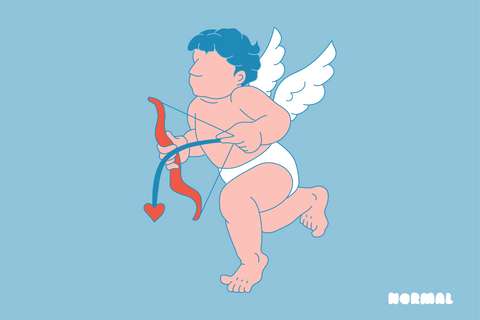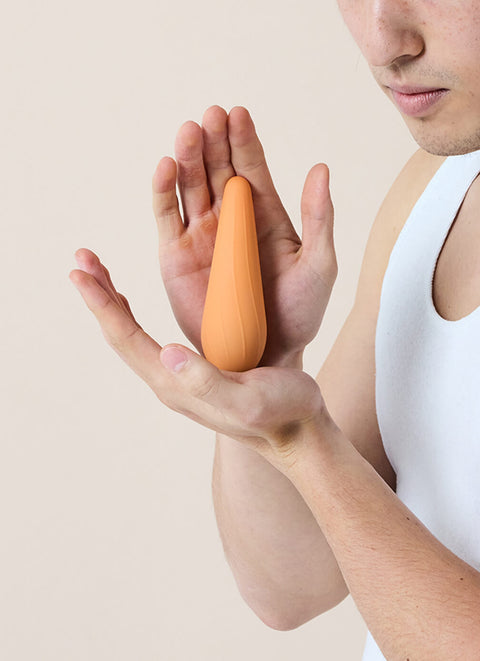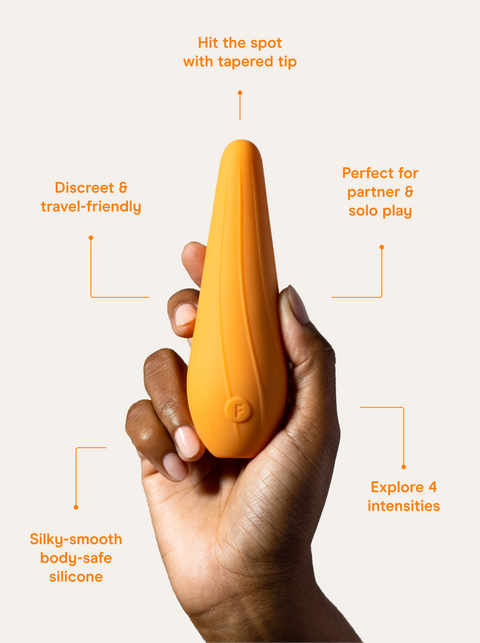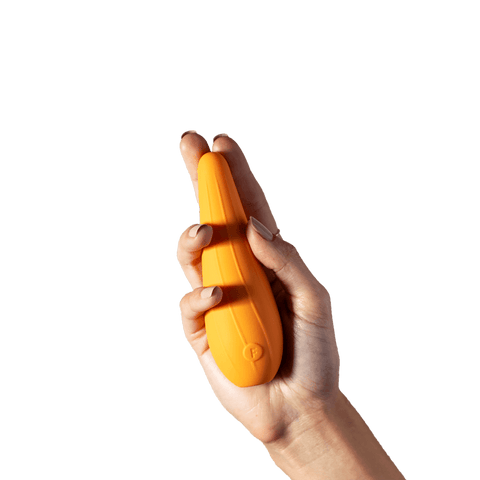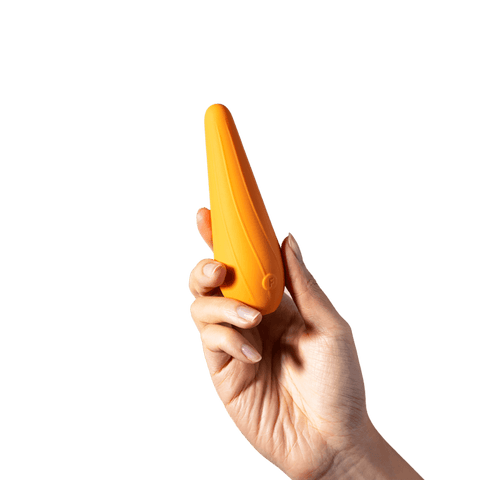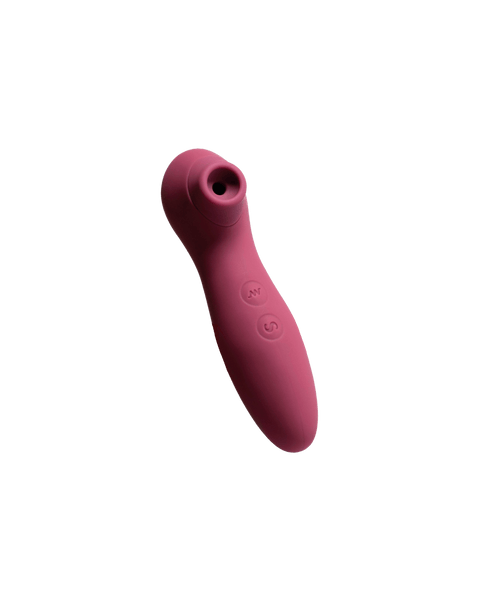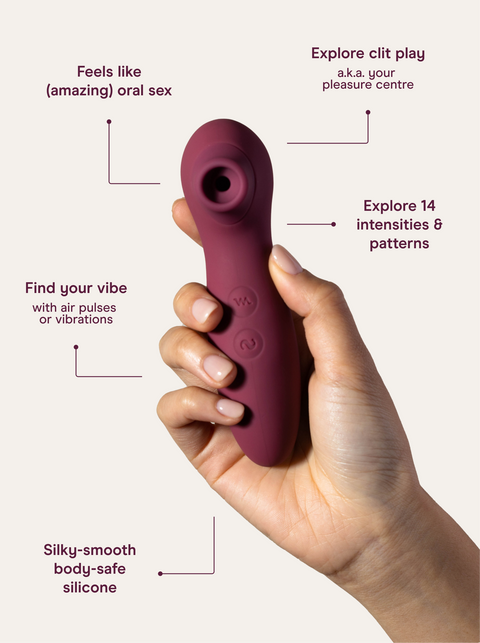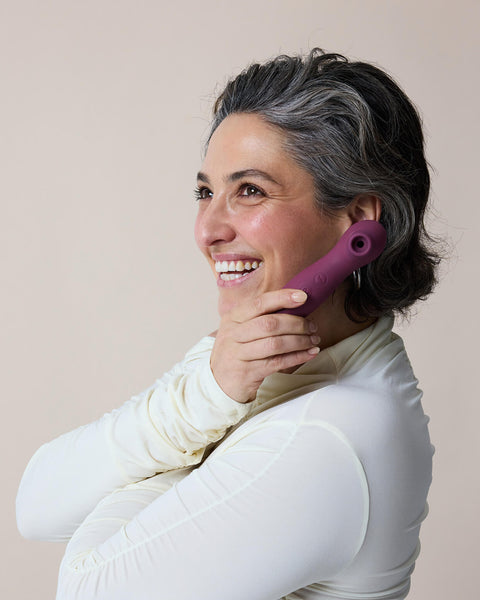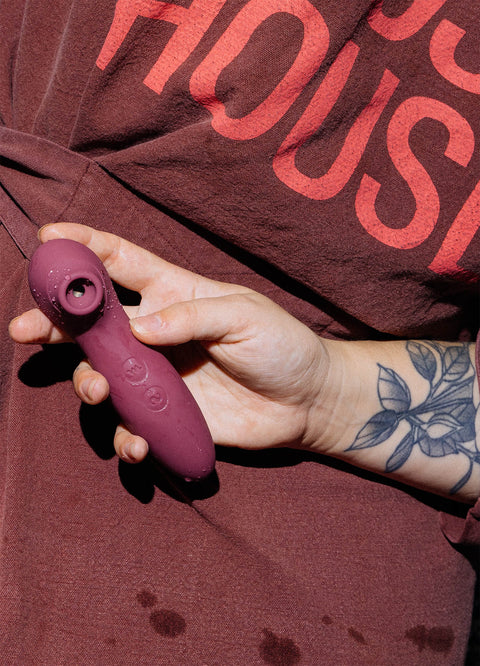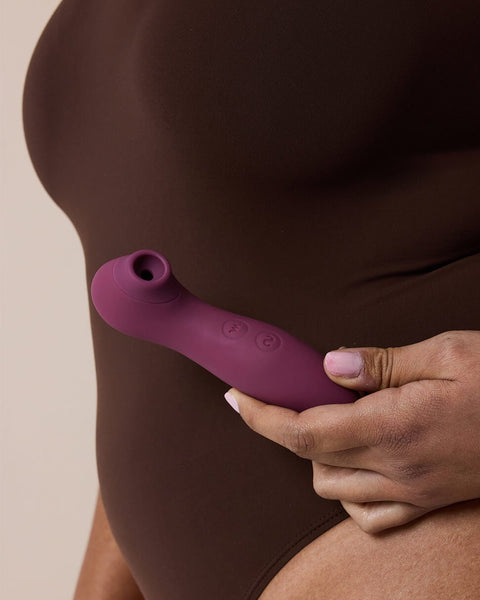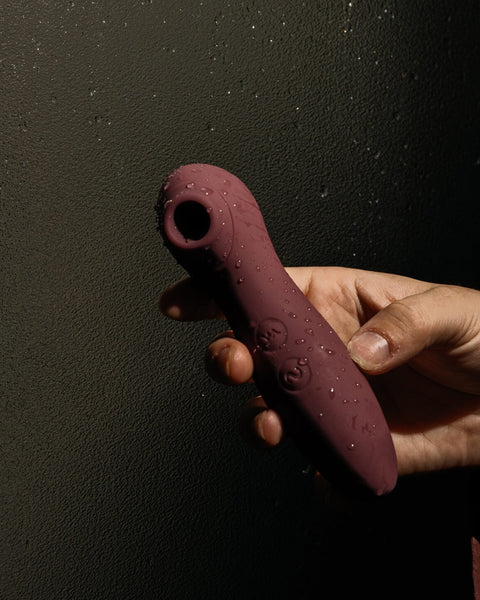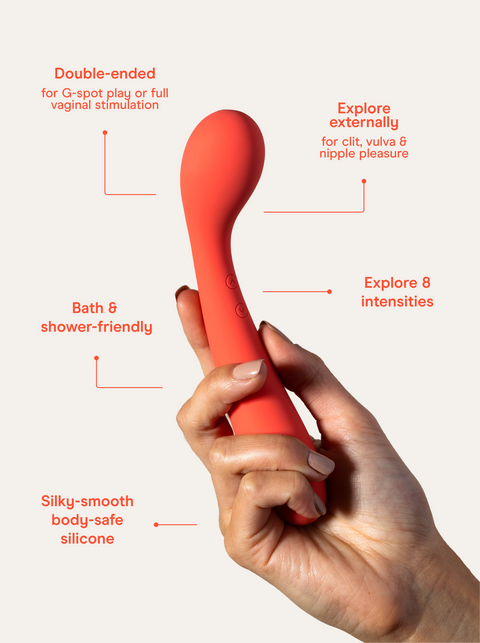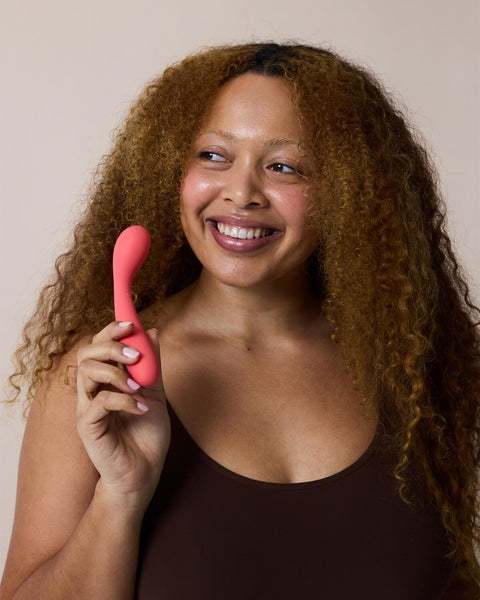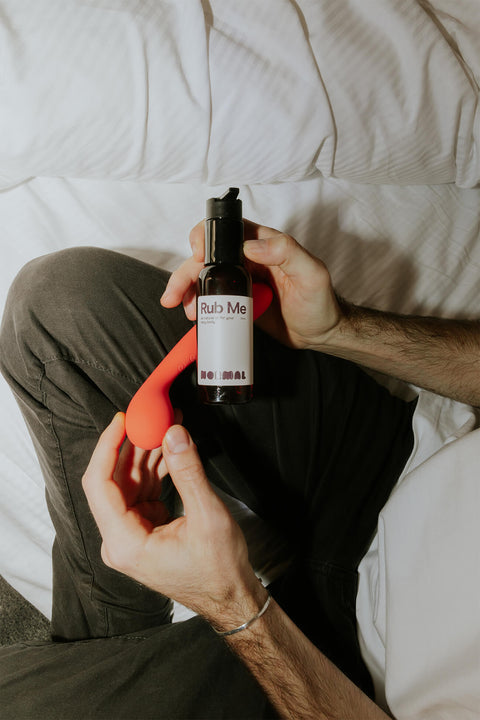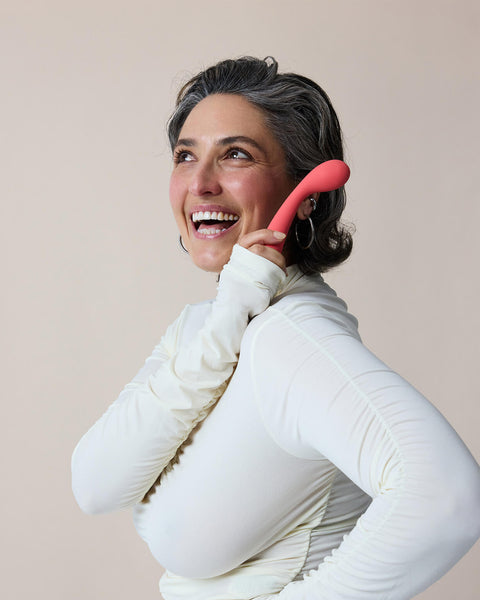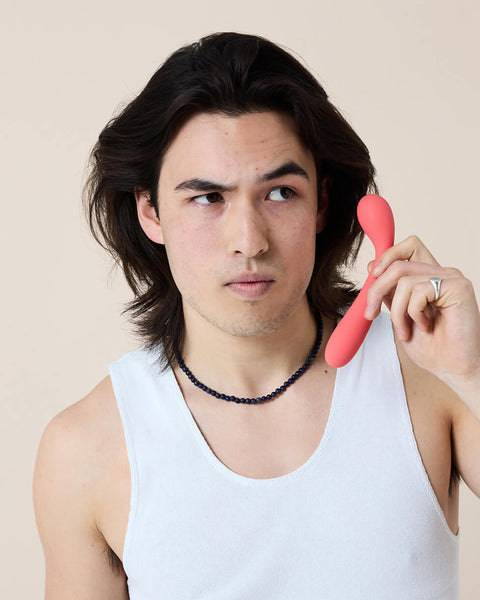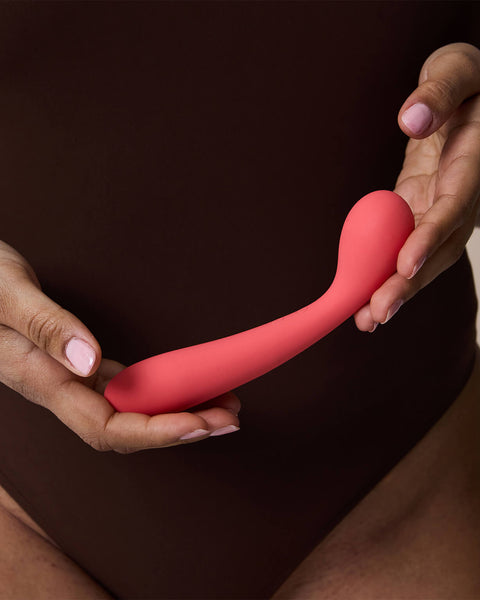Hyposexuality, in a nutshell, is a low or reduced interest in sexual activity. It means a lower frequency of sexual thoughts, desires, and behaviours compared to what’s often considered the norm.
In a world that often emphasises the importance of high sex drives, it's essential to remember that we all have unique ways of experiencing life, including our sexual lives. That having been said, while there’s no specific amount of sex that you ‘should’ be desiring, it can be strange or even worrying to notice that your sex drive has fallen from what it used to be, or that you seem to desire sex noticeably less than your partner.
Basically:
- Hyposexuality refers to a lowered desire for sex
- Everyone’s desire for sex and intimacy is different
- We recommend speaking to your GP for treatment options
But first…asexuality and hyposexuality. What’s the difference?
Asexuality and hyposexuality are both terms that describe distinct aspects of the human sexual experience, but they refer to different things. Asexuality refers to a sexual orientation in which individuals experience little to no sexual attraction towards others. It's a consistent lack of interest in engaging in sexual activities, often independent of the individual's gender or relationships.
On the other hand, hyposexuality denotes a reduced interest in sexual activity, but it doesn't necessarily imply a complete absence of sexual attraction. It can also refer to a loss of interest in sex where there once was one—if you used to have a higher sex drive but now have a lower one, you may be experiencing hyposexuality. While asexuality typically represents a lack of sexual attraction, hyposexuality implies a reduced intensity of sexual interest rather than a complete disinterest.
Am I hyposexual?
Hyposexuality is a recognised medical condition characterised by a persistent lack of sexual desire or interest. For individuals experiencing hyposexuality over long- or short-term periods, their diminished libido can cause distress and significantly impact their quality of life, self-esteem, and intimate relationships.
But diagnosing hyposexuality isn't as simple as taking a blood test or doing an x-ray. It’s trickier to work out when a lack of interest in sex crosses the line from, ‘it’s been a tough month and I haven’t been in the mood much’ to hyposexuality. That said, it might be worth considering the following things if you’re concerned about having a low desire for sex:
- In the past have you enjoyed sex and intimacy, but now don’t?
- Would you like to be having more sex than you are?
- Do you sometimes not enjoy the sex you’re having?
- Is it harder to become aroused and experience orgasm than it used to be?
If some or all of those things ring true, it might be worth speaking to your GP about hyposexuality.
The diagnostic process often includes a thorough medical history assessment, a physical examination, and a discussion with a psychologist. Your GP might want to explore potential underlying causes such as hormonal imbalances, medications, chronic illnesses, or mental health factors that might contribute to the reduced sexual desire.
The treatment for hyposexuality largely depends on the underlying causes identified during the diagnostic process, and what kind of treatment you’re personally comfortable with. Some people may choose to manage a reduced sex drive holistically, while others might want to opt for a medical intervention. In some cases addressing issues such as hormone imbalances or medication side effects can lead to a resolution of hyposexuality symptoms—it can be common, after all, to experience a lowered sex drive when taking some types of medications. Mental health treatments such as counselling or therapy may also be beneficial, particularly if stress, anxiety, or past trauma are contributing to the reduced interest in intimacy.
Tips for living with hyposexuality
Navigating life with hyposexuality can be challenging, but there are strategies that individuals can employ to enhance their well-being and intimate relationships:
- Open communication. It's important for individuals with hyposexuality to openly communicate with their partners about their feelings and needs. A supportive and understanding partner can play a significant role in providing emotional support and intimacy.
- Professional support. Seeking help from healthcare professionals who specialise in sexual health can be a valuable step in understanding and addressing hyposexuality. They can provide tailored guidance and treatment options.
- Managing stress. High levels of stress and anxiety can exacerbate hyposexuality. Engaging in stress-reduction techniques, such as mindfulness, meditation, or regular physical movement can be beneficial.
- Exploring intimacy. Although sexual desire might be reduced, finding alternative ways to experience intimacy such as emotional bonding, cuddling, or non-sexual touch can strengthen the emotional connection with a partner.
- Empowering self-acceptance. Coming to terms with hyposexuality as a condition, rather than an active choice, is essential. Understanding that sexual desire, or a lack of it, does not define your self-worth is crucial.
Remember that you are not alone, and with the right support it's possible to lead a fulfilling life and maintain meaningful intimate relationships while living with hyposexuality.

